The Road to Rio – The Release of the Guanabara Bay Report Card
Alexandra Fries · | Environmental Report Cards | Science Communication |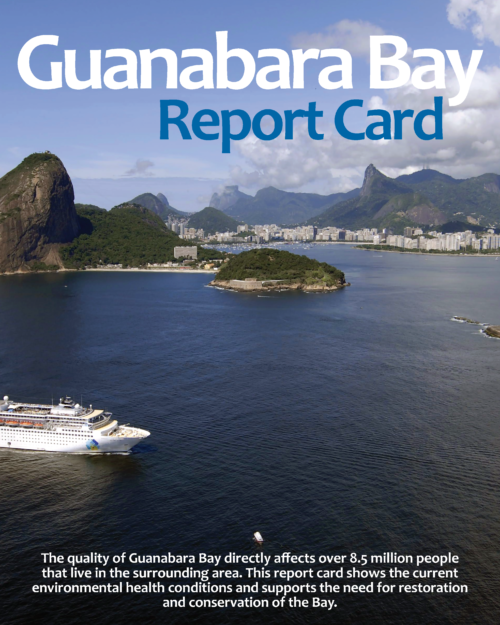
The report card was released at the Museum of Tomorrow during an event called the Bay of Tomorrow, which included many presentations and over 400 participants. Dave Nemazie and I released the report card with the help of Joao Coimbra and Bob Summers.
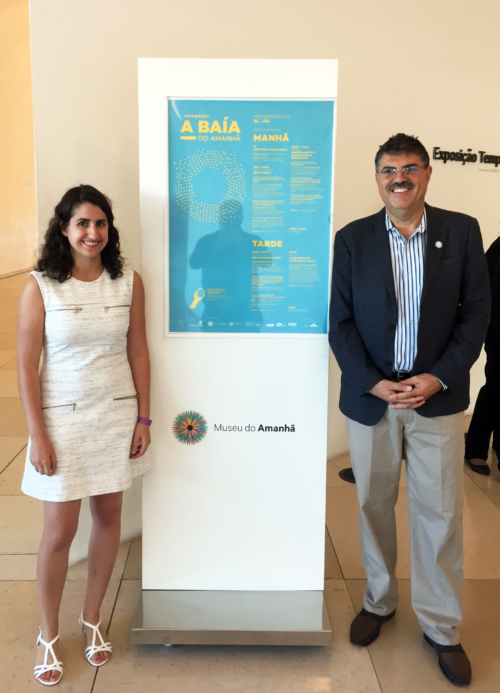
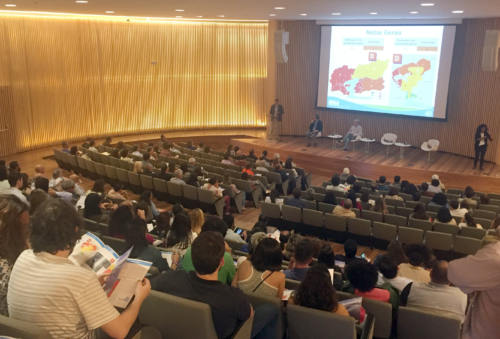
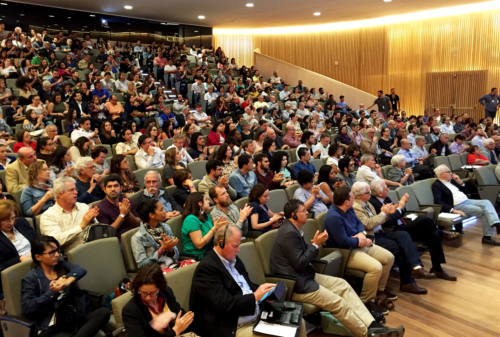
The report card focused on water quality indicators for Guanabara Bay and its Basin. The Bay and Basin both received D grades, showing poor water quality throughout a region that supports almost 9 million inhabitants.
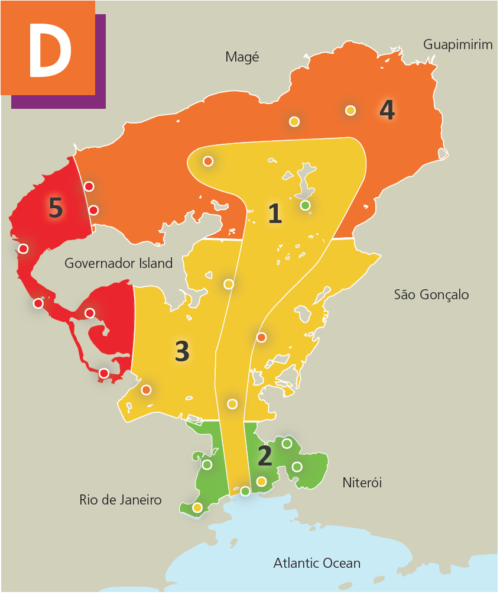
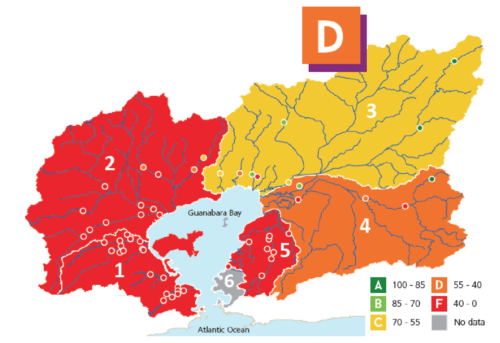
The international spotlight was shown on Rio, and Guanabara Bay, during the Olympics last year, with the poor conditions evident. To clean up the bay, sewage treatment and proper trash collection and disposal are imperative. The report card highlights the sanitation and trash problems in the bay, and the enormous need for these services to be available for people living around Guanabara Bay.
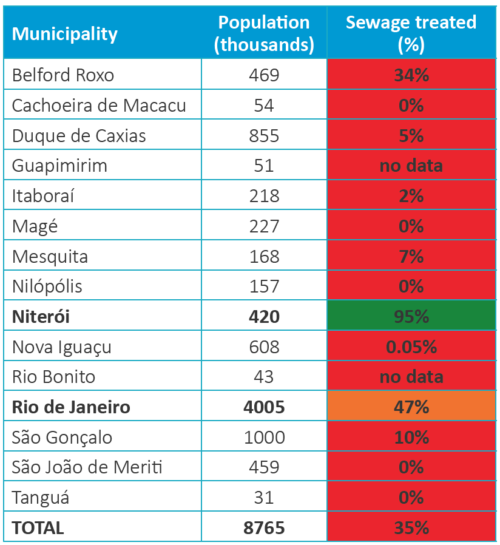
During the lunch break of the event, some dolphins came to join the report card release! These dolphins do not live in the Bay primarily, but came in through the channel probably looking for fish. The Museum of Tomorrow is on a pier sticking out into the Bay, and the dolphins were on the northern side of the pier.
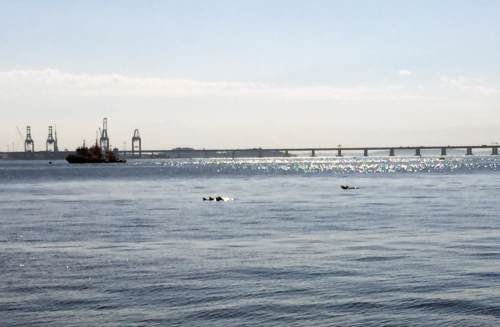
After the break, Bob Summers presented the framework for the restoration plan of the Bay which he developed through his work at KCI, Technologies Inc. Having a restoration plan in place is really important for making progress in reducing pollution and stress on Guanabara Bay.
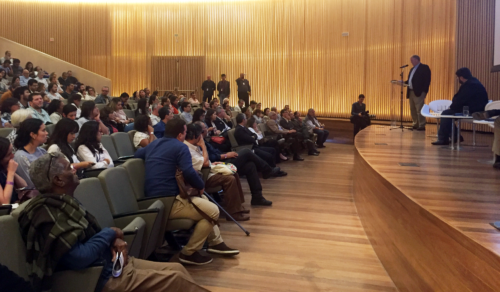
The release event was a big success in releasing the report card, the restoration plan, and bringing people together to talk about the Bay. Overall, the people of Rio and the municipalities surrounding the Bay need to feel their connection to the Bay and take responsibility for the Bay. If everyone does a small part, together they can protect and restore Guanabara Bay. It isn’t just about “Team Rio,” it’s about “Team Guanabara Bay.”
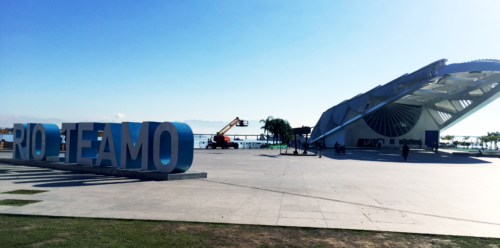
The report card and other resources are available online at guanabarabay.ecoreportcard.org.
About the author
Alexandra Fries

Alexandra is a Program Manager at the Integration and Application Network (IAN) based at the University of Maryland Center for Environmental Science in Annapolis MD. Alexandra’s work in environmental management has been focused on assessment, monitoring, and management of aquatic, marine, and terrestrial ecosystems. Alexandra has extensive experience in data analysis, synthesis, mapping, interpretation, and communication. Alexandra has experience working with a diverse group of partners including those in local, state, and federal government, non-governmental organizations, non-profit organizations, private industry, and academia. Within IAN, Alexandra conducts data analysis, synthesis, and communication by completing environmental report cards, updating the IAN website, and conducting science communication courses. Alexandra also creates science communication materials such as diagrams, posters, presentations, newsletters, and reports using Adobe Creative Suite, Microsoft Office Suite, and ArcGIS. Alexandra has experience managing projects and staff on local and international projects, liaising directly with partners and colleagues, and providing insights on project direction and goals.